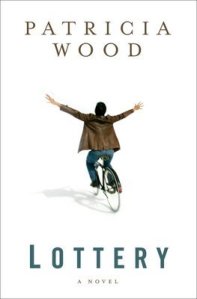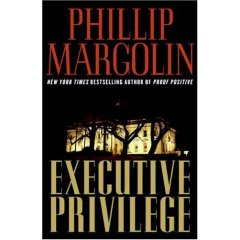 Patricia Wood’s novel, Lottery, is a quiet novel with a high-concept that caused agents and then publishers to compete for it. Since publication, the novel has sold steadily in hardover (unusual) and is now selling well in trade paperback. It’s one of those word-of-mouth wonders we sometimes hear about.
Patricia Wood’s novel, Lottery, is a quiet novel with a high-concept that caused agents and then publishers to compete for it. Since publication, the novel has sold steadily in hardover (unusual) and is now selling well in trade paperback. It’s one of those word-of-mouth wonders we sometimes hear about.
Wood’s concept: What if a mentally challenged man won the lottery?
Grabs, doesn’t it? And it got me thinking that the “high-concept” concept doesn’t only apply to commercial fiction.
Debut novelists on book tours are a relatively rare event these days, and even more rare is a paperback book tour, so I was curious about how her reading would differ from the likes of Phillip Margolin and David Guterson. There were less than 10 of us, but everyone except me had already read the novel. Ms. Wood was an energetic self-promoter, inviting random book browsers to sit down and have a listen.
Unlike the seasoned novelists I’ve seen recently, Ms. Wood didn’t talk much about craft or process. I got the impression that she was so pumped by her extraordinary, maybe even surprising, success after years of unpublished toil that she wanted to talk about that instead. (I probably would, too, come to think of it.)
Some highlights:
1. What else could prop up hardcover sales besides word-of-mouth? It probably didn’t hurt that Lottery was short-listed for England’s Orange Prize and that actress Sarah Michelle Gellar bought the film rights.
The Internet is a strange, strange world. Apparently, the purchased film rights appeared as a factoid on a website somewhere, and Buffy-the-Vampire-Slayer fans everywhere sought out the novel.
2. Self-promotion: She handed out novel business cards in hopes we would pass them on and also signed bookplates to stick into our books. She participates in two or three book clubs a week via iChat or speaker phone (or are those the same thing?).
3. Lottery is her fourth written novel. Another example of patience and perseverence. Her first, second, and third written novels will be her third, fourth, and fifth published novels.
4. And she accumulated about 90 rejections with those first three novels! Patience and perseverence indeed!
5. Where did her novel idea come from? She woke up early one morning with a voice in her head and this first sentence: My name is Perry L. Crandall and I am not retarded. She wrote the prologue immediately, and it didn’t change much from first draft to published version.
What interested me is that her idea came out of her life — it wasn’t as random as a dream voice telling her to write it down. First, she’s well-versed in disability issues through her graduate school studies and advocacy work. Second, her father won the Washington state lottery back in the 90s. Two distinct areas of her life melded themselves into a pleasing story idea. Gotta love the subconsious mind.
6. Best quote: “Writers are socially acceptable schizophrenics.” I and I and I are down with this observation!



